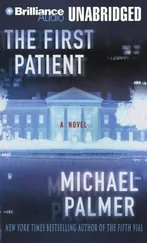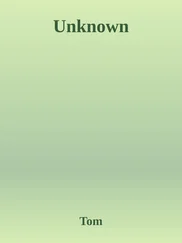Michael Ondaatje - The English Patient
Здесь есть возможность читать онлайн «Michael Ondaatje - The English Patient» весь текст электронной книги совершенно бесплатно (целиком полную версию без сокращений). В некоторых случаях можно слушать аудио, скачать через торрент в формате fb2 и присутствует краткое содержание. Жанр: Старинная литература, на русском языке. Описание произведения, (предисловие) а так же отзывы посетителей доступны на портале библиотеки ЛибКат.
- Название:The English Patient
- Автор:
- Жанр:
- Год:неизвестен
- ISBN:нет данных
- Рейтинг книги:4 / 5. Голосов: 1
-
Избранное:Добавить в избранное
- Отзывы:
-
Ваша оценка:
- 80
- 1
- 2
- 3
- 4
- 5
The English Patient: краткое содержание, описание и аннотация
Предлагаем к чтению аннотацию, описание, краткое содержание или предисловие (зависит от того, что написал сам автор книги «The English Patient»). Если вы не нашли необходимую информацию о книге — напишите в комментариях, мы постараемся отыскать её.
The English Patient — читать онлайн бесплатно полную книгу (весь текст) целиком
Ниже представлен текст книги, разбитый по страницам. Система сохранения места последней прочитанной страницы, позволяет с удобством читать онлайн бесплатно книгу «The English Patient», без необходимости каждый раз заново искать на чём Вы остановились. Поставьте закладку, и сможете в любой момент перейти на страницу, на которой закончили чтение.
Интервал:
Закладка:
Where does he sit in his garden thinking once again he should go inside and write a letter or go one day down to the telephone depot, fill out a form and try to contact her in another country. It is this garden, this square patch of dry cut grass that triggers him back to the months he spent with Hana and Caravaggio and the English patient north of Florence in the Villa San Girolamo. He is a doctor, has two children and a laughing wife. He is permanently busy in this city. At six p.m. he removes his white lab coat. Underneath he wears dark trousers and a short-sleeved shirt. He closes up the clinic, where all the paperwork has weights of various kinds—stones, inkpots, a toy truck his son no longer plays with—to keep it from being blown away by the fan. He climbs onto his bicycle and pedals the four miles home, through the bazaar. Whenever he can he swerves his bicycle over to the shadowed part of the street. He has reached an age when he suddenly realizes that the sun of India exhausts him.
He glides under the willows by the canal and then stops at a small neighbourhood of houses, removes his cycle clips and carries the bicycle down the steps into the small garden his wife has nurtured.
And something this evening has brought the stone out of the water and allowed it to move back within the air towards the hill town in Italy. It was perhaps the chemical burn on the arm of the girl he treated today. Or the stone stairway, where brown weeds grow ardently along the steps. He had been carrying his bicycle and was halfway up the steps before he remembered. This had been on the way to work, so the trigger of memory was postponed when he got to the hospital and ran into seven hours of constant patients and administration. Or it might have been the burn on the young girl’s arm.
He sits in the garden. And he watches Hana, her hair longer, in her own country. And what does she do? He sees her always, her face and body, but he doesn’t know what her profession is or what her circumstances are, although he sees her reactions to people around her, her bending down to children, a white fridge door behind her, a background of noiseless tram cars. This is a limited gift he has somehow been given, as if a camera’s film reveals her, but only her, in silence. He cannot discern the company she moves among, her judgement; all he can witness is her character and the lengthening of her dark hair, which falls again and then again into her eyes.
She will, he realizes now, always have a serious face. She has moved from being a young woman into having the angular look of a queen, someone who has made her face with her desire to be a certain kind of person. He still likes that about her. Her smartness, the fact that she did not inherit that look or that beauty, but that it was something searched for and that it will always reflect a present stage of her character. It seems every month or two he witnesses her this way, as if these moments of revelation are a continuation of the letters she wrote to him for a year, getting no reply, until she stopped sending them, turned away by his silence. His character, he supposed.
Now there are these urges to talk with her during a meal and return to that stage they were most intimate at in the tent or in the English patient’s room, both of which contained the turbulent river of space between them. Recalling the time, he is just as fascinated at himself there as he is with her—boyish and earnest, his lithe arm moving across the air towards the girl he has fallen in love with. His wet boots are by the Italian door, the laces tied together, his arm reaches for her shoulder, there is the prone figure on the bed.
During the evening meal he watches his daughter struggling with her cutlery, trying to hold the large weapons in her small hands. At this table all of their hands are brown. They move with ease in their customs and habits. And his wife has taught them all a wild humour, which has been inherited by his son. He loves to see his son’s wit in this house, how it surprises him constantly, going beyond even his and his wife’s knowledge and humour—the way he treats dogs on the streets, imitating their stroll, their look. He loves the fact that this boy can almost guess the wishes of dogs from the variety of expressions at a dog’s disposal.
And Hana moves possibly in the company that is not her choice. She, at even this age, thirty-four, has not found her own company, the ones she wanted. She is a woman of honour and smartness whose wild love leaves out luck, always taking risks, and there is something in her brow now that only she can recognize in a mirror. Ideal and idealistic in that shiny dark hair! People fall in love with her. She still remembers the lines of poems the Englishman read out loud to her from his commonplace book. She is a woman I don’t know well enough to hold in my wing, if writers have wings, to harbour for the rest of my life.
And so Hana moves and her face turns and in a regret she lowers her hair. Her shoulder touches the edge of a cupboard and a glass dislodges. Kirpal’s left hand swoops down and catches the dropped fork an inch from the floor and gently passes it into the fingers of his daughter, a wrinkle at the edge of his eyes behind his spectacles.
Acknowledgements
While some of the characters who appear in this book are based on historical figures, and while many of the areas described—such as the Gilf Kebir and its surrounding desert—exist, and were explored in the 1930s, it is important to stress that this story is a fiction and that the portraits of the characters who appear in it are fictional, as are some of the events and journeys.
1 would like to thank the Royal Geographical Society, London, for allowing me to read archival material and to glean from their Geographical Journals the world of explorers and their journeys—often beautifully recorded by their writers. I have quoted a passage from Hassanein Bey’s article “Through Kufra to Darfur” (1924), describing sandstorms, and I have drawn from him and other explorers to evoke the desert of the 1930s. I would like to acknowledge information drawn from Dr. Richard A. Bermann’s “Historical Problems of the Libyan Desert” (1934) and R. A. Bagnold’s review of Almásy’s monograph on his explorations in the desert.
Many books were important to me in my research. Unexploded Bomb by Major A. B. Hartley was especially useful in re-creating the construction of bombs and in describing the British bomb disposal units at the start of World War II. I have quoted directly from his book (the italicized lines in the “In Situ” section) and have based some of Kirpal Singh’s methods of defusing on actual techniques that Hartley records. Information found in the patient’s notebook on the nature of certain winds is drawn from Lyall Watson’s wonderful book Heaven’s Breath , direct quotes appearing in quotation marks. The section from the Candaules-Gyges story in Herodotus’s Histories is from the 1890 translation by G. C. McCauley (Macmillan). Other quotations from Herodotus use the David Grene translation (University of Chicago Press). The line in italics on this page is by Christopher Smart; the lines in italics on this page are from John Milton’s Paradise Lost; the line Hana remembers on this page is by Anne Wilkinson. I would also like to acknowledge Alan Moorehead’s The Villa Diana , which discusses the life of Poliziano in Tuscany. Other important books were Mary McCarthy’s The Stones of Florence; Leonard Mosley’s The Cat and the Mice; G. W. L. Nicholson’s The Canadians in Italy 1943-5 and Canada’s Nursing Sisters; The Marshall Cavendish Encyclopaedia of World War II; F. Yeats-Brown’s Martial India; and three other books on the Indian military: The Tiger Strikes and The Tiger Kills , published in 1942 by the Directorate of Public Relations, New Delhi, India, and A Roll of Honor .
Читать дальшеИнтервал:
Закладка:
Похожие книги на «The English Patient»
Представляем Вашему вниманию похожие книги на «The English Patient» списком для выбора. Мы отобрали схожую по названию и смыслу литературу в надежде предоставить читателям больше вариантов отыскать новые, интересные, ещё непрочитанные произведения.
Обсуждение, отзывы о книге «The English Patient» и просто собственные мнения читателей. Оставьте ваши комментарии, напишите, что Вы думаете о произведении, его смысле или главных героях. Укажите что конкретно понравилось, а что нет, и почему Вы так считаете.












